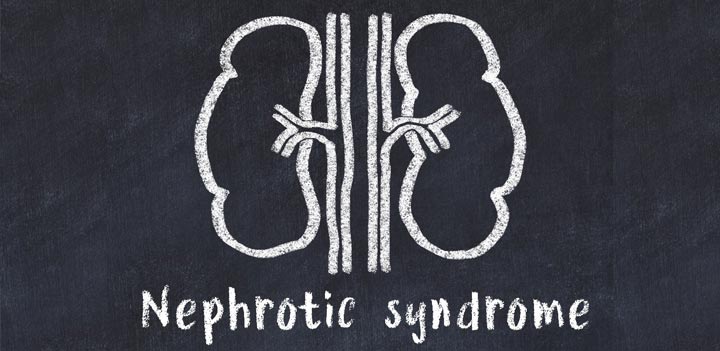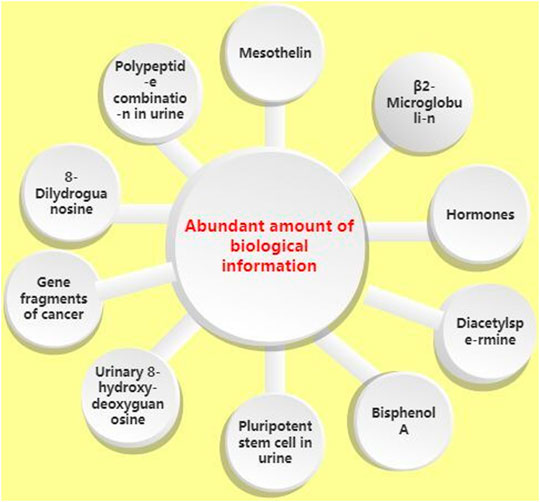Foamy urine is often caused by the presence of protein, which can indicate kidney problems. Dehydration, urinary tract infections, or the speed of urination can also lead to foaminess.
Observing foamy urine can be unsettling, prompting questions about one's health. A common reason for this occurrence relates to proteinuria, a condition characterized by excessive protein levels in urine. Typically, kidneys filter protein, ensuring it remains in the body to perform essential functions.
When these organs face issues, they may leak protein into the urine, creating foam. Not all causes for concern, mild dehydration, or a forceful urinary stream occasionally result in benign foam formation. Nevertheless, persistent foamy urine warrants a consultation with a healthcare provider to identify and address potential underlying conditions. Understanding foamy urine contributes to the early detection and management of possible kidney-related health issues, making awareness crucial.
Clues In The Bubbles: Foamy Urine Unraveled
Spotting foam in your urine can be startling. What makes your urine act like a sudsy glass of beer? Here's a breakdown of this bubbly mystery.
The Science of Suds: Protein PresenceProteins are key to understanding foamy urine. While urine typically has a small amount of protein, excess protein causes foam. This condition, called proteinuria, hints at underlying health issues.
- Kidney function: Kidneys filter out proteins; malfunctions can lead to proteinuria.
- Dehydration: Less water in the body means more concentrated urine.
- Physical stress: Exercise can temporarily hike up protein levels.
Foamy urine often signals more than protein presence.
| Factor | Visual Clue |
|---|---|
Speed of Urination |
Forceful urination can churn up more foam. |
Soap Residue |
Leftover soap in the toilet can react, causing foam. |
Medical Conditions |
Diabetes, infections, or kidney disease may cause changes. |
Colors and consistency also offer vital hints. Dark foamy urine could indicate liver issues. Always consult a doctor for a proper diagnosis.

Credit: clinicalrenal.com
Proteinuria: A Primary Culprit
Stumbling upon a puddle of frothy urine can be alarming. Proteinuria often stands as the main cause. This term refers to excess protein in the urine. Kidneys usually prevent protein from entering the urine. When they fail, protein escapes into it. This can lead to frothiness, resembling a bubbly soft drink.
Kidney Function Missteps
Imagine your kidneys as vigilant gatekeepers. These organs maintain a delicate balance of substances in your blood. Proper function ensures toxins flush out, while essential components like proteins stay in. Below are key ways kidneys can misstep, leading to foam in urine:
- Glomeruli damage: Glomeruli are tiny blood filters in your kidneys. When these are damaged, proteins slip through.
- Excessive protein: Sometimes, too much protein overwhelms the kidneys, causing spillage.
- Urinary infections: These can irritate and permeate the urinary tract, leading to protein leakage.
Chronic Conditions Leading To Protein Leak
Diverse chronic conditions can be linked to proteinuria. Here's a quick glance at common health issues that may prompt your kidneys to allow protein into your urine:
- Diabetes: High blood sugar can over time, harm kidneys' filtering ability.
- Hypertension: High blood pressure can strain and injure the kidneys.
- Lupus: This autoimmune disease can cause kidney inflammation.
Managing these conditions is crucial. It prevents further kidney damage and protein loss.
Dehydration: A Concentration Issue
Dehydration: a situation where the body lacks enough fluids. This can lead to foamy urine. But why does this happen? When the body is low on water, urine can become more concentrated with substances.
Effects Of Low Fluid Intake
Not drinking enough water can have serious effects:
- Urine becomes darker in color.
- It may start to smell stronger.
- The chance of urinary tract infections rises.
- Foam formation can increase.
Urine Composition Changes
Low fluid intake leads to changes:
Normal Urine |
Concentrated Urine |
|---|---|
High water content |
Lower water, higher solutes |
Light color |
Darker color |
Fewer bubbles |
More foam |
Proteins and other substances become more concentrated. This causes urine to foam.

Credit: www.frontiersin.org
Urinary Tract Infections (UTIs): Bacteria And Bubbles
Have you ever noticed foam in your urine and wondered why? One common cause is a urinary tract infection or UTI. This happens when bacteria invade the urinary system, causing a range of symptoms. Let's uncover how UTIs can lead to foamy urine.
Microbial Growth And Urinary Discomfort
UTIs often start when bacteria find their way into the urinary tract. This growth can irritate the bladder and urethra. Signs might include:
- A burning sensation when urinating
- Urge to urinate frequently
- Cloudy or strong-smelling urine
These microbes can contribute to urine's foamy appearance. The speed at which urine hits the water and urea content play a role, too.
The Link Between Infection And Foam
UTIs disturb the normal calm flow of urine. Air gets mixed into the urine, causing bubbles. The link is straightforward:
- Infection increases urine protein levels.
- Proteins stabilize the bubbles.
- Foam forms as a result.
Remember, foamy urine can signal other issues too. A healthcare provider can do tests to find the exact cause.
Medications And Supplements: Side Effects On The System
Medications and Supplements: Side Effects on the System often go unnoticed. Yet, they play a pronounced role in the body’s daily functions. Remarkably, something as routine as checking the color and consistency of your urine can unveil the effects of pharmaceuticals and dietary supplements on your system. Foamy urine, for instance, strikes curiosity and concern in many. It serves as a clear indicator that something within is not in its usual state. This often arises from medications and supplements one undertakes. Let's dive into how these substances influence the foamy appearance of urine.
Pharmaceutical Influences On Urine
Medications can indeed cause a stir within your urinary tract. Drugs for hypertension, such as ACE inhibitors, or antibiotics, like penicillin, sometimes trigger excess protein in the urine. This often results in a bubbly output indicative of foam. Diuretics, tasked with ridding excess fluid, may also concentrate urine proteins, enhancing the foam factor.
- ACE Inhibitors: Could increase protein in the urine
- Antibiotics: Penicillin might lead to foamy urine
- Diuretics: Known to concentrate urine, causing foam
Supplements Stirring The Pot
Turning to supplements can have unexpected repercussions. For instance, protein powders surge protein intake, pushing the kidneys into overdrive. This might lead to a foamy aftermath. Creatine, popular among athletes, can produce a similar effect with its protein-amplifying properties.
- Protein powders increase daily protein, affecting urine
- Creatine boosts muscle energy and potentially urine foam
Individuals need to remain vigilant about their choice of medications and supplements and the potential side effects they may harbor. Foamy urine serves as a gentle nudge to reconsider and consult healthcare providers if necessary. Revising one's regimen might be the key to destabilizing the body's natural balance.
Lifestyle And Dietary Factors: The Fizz From Food
Let's pop the cap off a topic not often talked about foamy urine. It's not just a medical puzzle; what you eat and how much you move can shake things up in your bladder, quite literally. This section bubbles over with information on how what's on your plate and your exercise routine might just be the culprits behind that unexpected fizz.
Dietary Protein: A Double-edged Sword
Munching on protein-rich foods is like walking a tightrope. It's good for muscles, but too much can lead to bubbly urine. Protein builds strength, but an overflow can make kidneys foam up like a shaken soda can. Here's the simple science:
- Proteins are big molecules.
- Kidneys filter them.
- High amounts overwhelm this filter.
- Foam forms as proteins mix with urine.
A balanced diet keeps protein levels just right. So aim for that middle ground and keep your kidney filter happy!
Physical Exercise And Muscular Breakdown
Your muscles go through wear and tear during a workout. This is perfectly normal! Yet, pushing too hard can lead to more than just soreness. Here's what happens:
- You work out; muscles break a tiny bit.
- Muscle bits get into your blood.
- Kidneys clear them out.
Extra muscle breakdown means more stuff for your kidneys to handle. This can cause your pee to foam. So, remember to exercise, but give those muscles a break too!
When To Consult The Doctor: Recognizing Red Flags
Noticing foam in your urine can be unsettling. While occasional bubbles are often harmless, certain signs indicate a need for medical evaluation. This post focuses on understanding when frothy urine should prompt a doctor's visit.
Persistent Foaming: A Sign To Seek Help
Occasional foamy urine might not be a cause for concern. But persistent foaming should not be overlooked. This symptom could suggest protein in your urine, which may indicate underlying health issues like kidney problems. A urine test can help diagnose the cause. If foam in urine is a regular occurrence, it's time to consult your healthcare provider.
Symptoms Warranting Immediate Attention
- Swelling in the legs, ankles, or face – These signs could show kidney stress and need prompt attention.
- Painful urination – Pain could point to an infection that requires treatment.
- Changes in urine color – Dark or red urine might signal a serious condition like blood in the urine.
- Fatigue or confusion – These symptoms, paired with foamy urine, may show a kidney issue affecting your body’s ability to filter waste efficiently.
If any of these signs are present, alongside foamy urine, do not hesitate to seek medical guidance. Early detection and treatment of potential kidney issues are vital for maintaining long-term health.
Conclusion
Foamy urine can signal health concerns that should not be ignored. It may indicate proteinuria or a possible kidney issue. Always consult a healthcare provider if you notice persistent foaminess. Prioritizing your urinary health is crucial; early detection leads to better outcomes.
Remember, your well-being is paramount.


